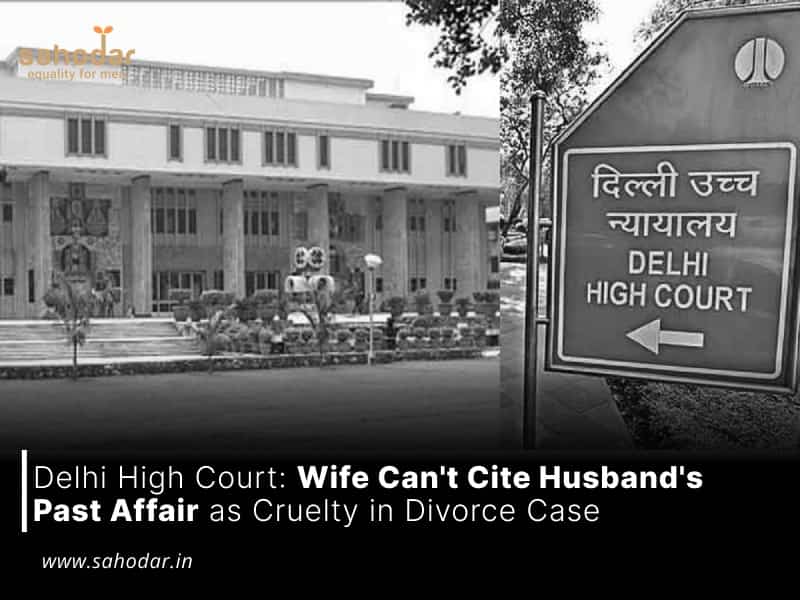The Court also noted that making friends at the workplace or talking to them is not a cruel act or an act of ignoring the wife, particularly when the spouses were living apart due to the nature of their work.
The Delhi High Court has judicially opined that in divorce proceedings, a spouse cannot subsequently characterize their partner’s extramarital affair as an act of cruelty if they have previously pardoned or acquiesced to it.
In the matter at hand, the Court ascertained that the wife had expressly demonstrated her intention to maintain the marital union despite the occurrence of the aforementioned affair.
Consequently, the Court determined that construing this extramarital affair as a basis for cruelty towards the wife within the framework of divorce proceedings would be legally untenable.
“It has been rightly concluded … that it was an act which was condoned by the appellant who despite this episode, had expressed her willingness to continue to reside with the respondent. Once an act which lasted for a short while had been condoned, it cannot be taken as an act of cruelty while deciding the petition for divorce,” the Court observed.
A divisional panel comprised of Justices Suresh Kumar Kait and Neena Bansal Krishna underscored that the outcome would have diverged had the extramarital relationship in question significantly impacted the dynamics of the marital relationship.
However, in this particular case, notwithstanding a brief extramarital romantic entanglement that occurred more than a decade ago and resulted in some disruption, the Court determined that the spouses effectively reconciled.
Furthermore, the Court observed that fostering workplace acquaintanceships or engaging in professional interactions with colleagues cannot be construed as acts of cruelty or manifestations of spousal neglect, particularly in a scenario where the spouses were separated due to work-related obligations.
“A person who is essentially living alone, may find solace by having friends and merely because he used to talk to his friends, it can neither be held to be an act of ignoring the appellant (wife) nor a cruel act. It has to be appreciated that both the parties having been essentially living separately because of their work exigencies, were bound to make friends at their place of work and otherwise; and such friendships without anything more, cannot be termed as cruelty,” the Court observed.
The Court reiterated the fundamental principle that children should not be subjected to alienation or employed as instruments of conflict amid disputes between parents.
These observations were made in the context of an appeal initiated by a woman challenging a family court’s verdict that granted her husband a divorce predicated on allegations of desertion and cruelty.
The husband, an Indian Army officer, contended that his recurrent official relocations, necessitated by his military service, had exacerbated the discord within their marriage, primarily due to his wife’s perceived lack of communication. He maintained that her minimal interaction had precipitated profound frustration and emotional anguish on his part.
Additionally, the husband asserted that his wife had levied unwarranted and baseless allegations against him, specifically accusing him of desertion, and had filed grievances with his superiors, including his Commanding Officer, the Family Welfare Organization, and the Army Headquarters, with the apparent aim of shifting blame to him.
In counterpoint, the wife contended that her husband had engaged in an extramarital relationship and was exploiting his own misdeeds as a pretext for seeking divorce. She vehemently repudiated the allegations made by her husband and asserted that during his brief visits on annual holidays and leaves, he subjected her to both physical and psychological cruelty.
Upon a comprehensive examination of the facts, the Court determined that the wife’s actions, particularly her estrangement of their daughter from the husband and the filing of complaints against him with his superiors, constituted acts of cruelty against the husband.
“Once vindictiveness has crept in and the appellant had marched on to the war path and filed not only complaints in the Department but also initiated various civil/legal cases since 2011, i.e., for about 12 years and has even alienated the daughter from the respondent, it leads to irresistible conclusion that various acts of cruelty have been committed towards the respondent (husband),” the Court said.
The Court, however, said that no grounds of desertion were made out in the case.
“The divorce was also granted on the ground of desertion, but from the above discussion, it is evident that the things had gone to an extent where neither the appellant nor the respondent were in a position to restore their marital ties. In these circumstances, it cannot be held that it was a case of desertion by the wife for a period of more than two years from the date of separation ie July, 2011 onwards,” the Court observed.
The Court, therefore, proceeded to uphold the divorce decree on the ground of cruelty alone.

